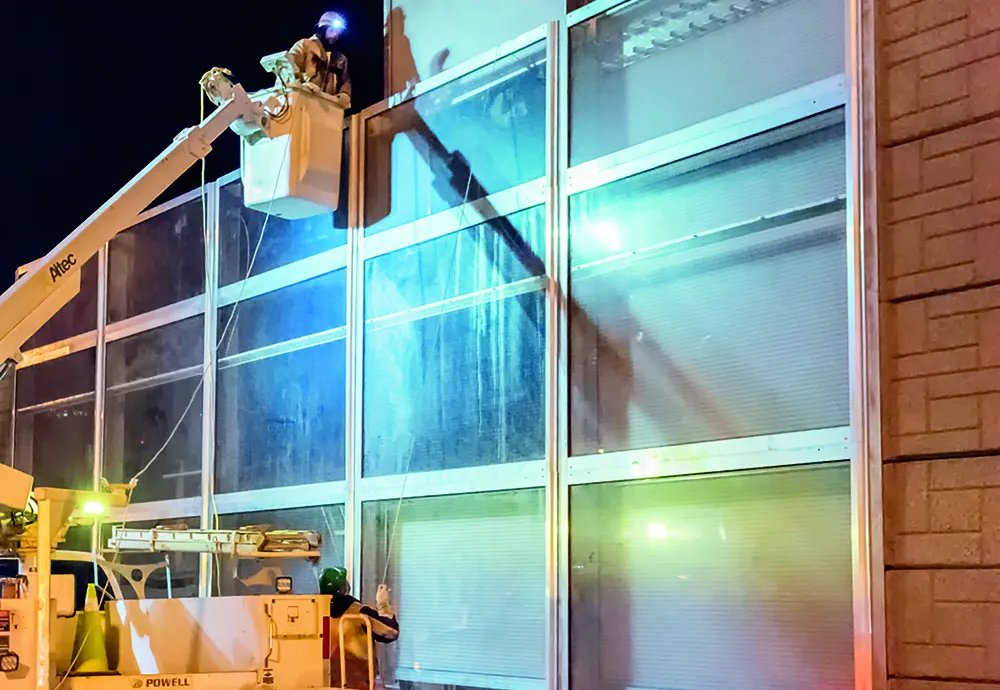According to a recent report from Navigant Research, global revenue for smart parking systems is expected to total $1.5 billion from 2015 to 2024. The report, Smart Parking Systems, analyses the evolution of smart parking technology and the smart parking systems market, including global market forecasts for smart parking systems hardware, software, and services through 2024.
The parking industry is being revolutionised by new technologies that enable cities to reduce levels of traffic congestion, conserv
September 22, 2015
Read time: 2 mins
According to a recent report from 7560 Navigant Research, global revenue for smart parking systems is expected to total $1.5 billion from 2015 to 2024. The report, Smart Parking Systems, analyses the evolution of smart parking technology and the smart parking systems market, including global market forecasts for smart parking systems hardware, software, and services through 2024.
The parking industry is being revolutionised by new technologies that enable cities to reduce levels of traffic congestion, conserve fuel, and lessen air and noise pollution levels. Sensor networks that can detect vehicle occupancy are enabling smart parking systems, which give drivers real-time availability information that makes it easier to find a parking space.
“The market for smart parking is still in its early stages, but large-scale adoptions have already taken place in many cities across North America and Europe,” says Ryan Citron, research analyst with Navigant Research. “Overly congested cities in the rest of the world— particularly in Latin America— are also showing increasing interest in the technology.”
Reducing urban traffic congestion is one of the most important drivers for the smart parking system market, according to the report. Congestion leads to increased greenhouse gas emissions, lost economic opportunity, and a general detriment to the quality of life in a city—it has been estimated that congestion costs the United States US$100 billion each year in wasted time and fuel.
The report analyses the evolution of smart parking technology and the smart parking systems market, with a particular focus on on-street parking. The study analyzes the drivers for the transformation in parking, including financial, environmental, and economic factors, and assesses approaches to parking in different regions. Global market forecasts of smart parking systems hardware, software, and services, broken out by segment and region, extend through 2024. It also examines significant smart parking projects and case studies of major deployments from around the world, as well as the competitive landscape.
The parking industry is being revolutionised by new technologies that enable cities to reduce levels of traffic congestion, conserve fuel, and lessen air and noise pollution levels. Sensor networks that can detect vehicle occupancy are enabling smart parking systems, which give drivers real-time availability information that makes it easier to find a parking space.
“The market for smart parking is still in its early stages, but large-scale adoptions have already taken place in many cities across North America and Europe,” says Ryan Citron, research analyst with Navigant Research. “Overly congested cities in the rest of the world— particularly in Latin America— are also showing increasing interest in the technology.”
Reducing urban traffic congestion is one of the most important drivers for the smart parking system market, according to the report. Congestion leads to increased greenhouse gas emissions, lost economic opportunity, and a general detriment to the quality of life in a city—it has been estimated that congestion costs the United States US$100 billion each year in wasted time and fuel.
The report analyses the evolution of smart parking technology and the smart parking systems market, with a particular focus on on-street parking. The study analyzes the drivers for the transformation in parking, including financial, environmental, and economic factors, and assesses approaches to parking in different regions. Global market forecasts of smart parking systems hardware, software, and services, broken out by segment and region, extend through 2024. It also examines significant smart parking projects and case studies of major deployments from around the world, as well as the competitive landscape.









